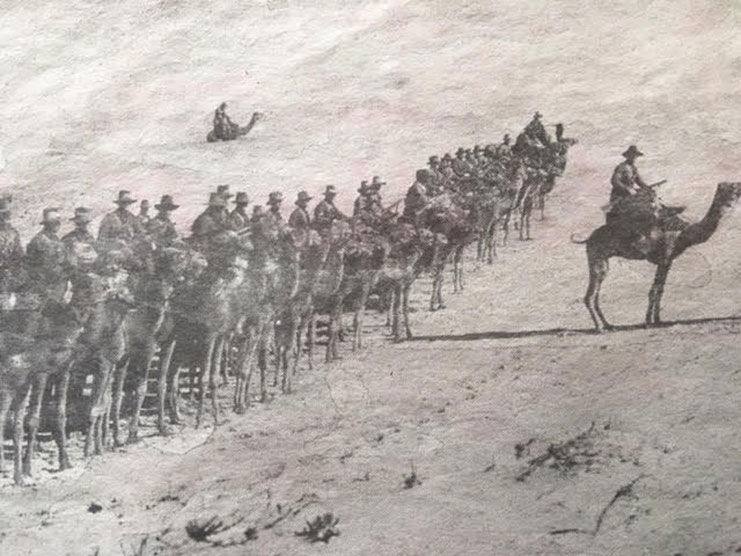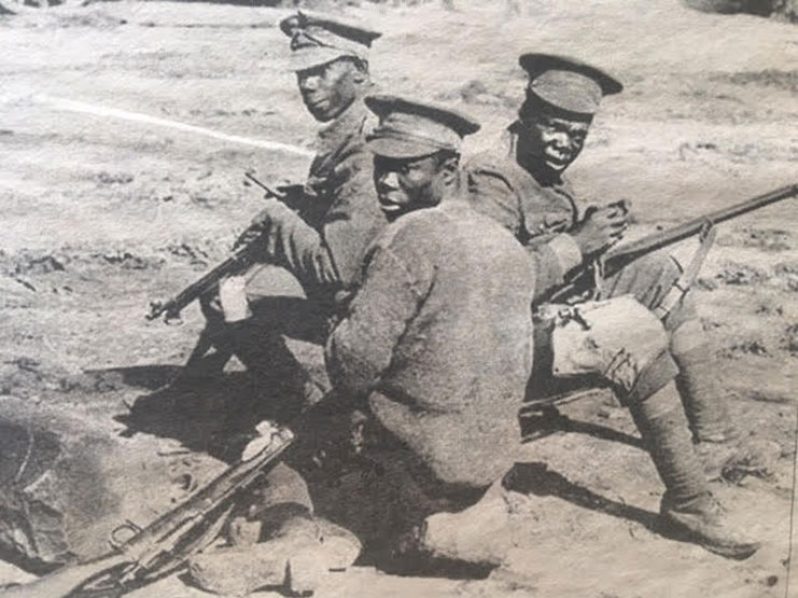By Francis Quamina Farrier
THE year 2017 marks 99 years since the end of the First World War (1914-1918), and I’ve decided to throw the spotlight on the last surviving Guyanese veteran of that war in which citizens of British Guiana were participants, fighting for King and country. He is Gerhom Onisemus Browne, who served with the British West Indian Regiment and saw action in North Africa and the Middle East.
During the 15 years in which I produced The Eighty-Plus Club, which was a weekly half-hour Radio Programme Series, I interviewed three Guyanese veterans of World War One. One of them was from West Berbice, one from Georgetown and the third was from West Coast Demerara. The latter,Gershom Barnabas Onesimus Browne, turned out to be Guyana’s last surviving World War 1 Veteran. He passed away on December 6, 2000, at the age of 102.
There wasn’t the kind of extended interactions with the two other veterans as I had with Gershom Browne. I had a long period of contact with him, visiting with him at his Bagotville, WCD home and interviewing him on many occasions, including for Father’s Day and Remembrance Day.
So it was my privilege to hear some first-hand stories about that First World War, in which many of the combatants fought face-to-face, most of them far from their homelands. I also learned quite a lot about the contributions of soldiers from British Guiana and the British West Indies; former British colonies which are now members of the Caribbean Community (CARICOM).
During my interviews with Gershom, he spoke of joining the army on February 1, 1916, when he was a mere17 year old. (The official age for joining was 18, but he was near enough, and so he was accepted). The teenaged Browne shipped out for the War Front in faraway North Africa in November 1916, as a member of the ‘C’ Company, First British West Indies Regiment. Most of those British Guianese were from Georgetown, Plaisance, Beterverwagting and Buxton, according to Gershom.

His ship made stops at Trinidad, Barbados, Grenada and St. Lucia, picking up other volunteers, before heading across the Atlantic Ocean, then through the Mediterranean Sea and finally to Malta. Shortly after, the soldiers were transported to Egypt in northern Africa, putting their lives on the line to support Brittan and the Allies.
Gershom saw action both in northern Africa and Palestine. He spoke of fighting against the Turkish Army who was allies with the German Army. There were many tough battles which the British West Indies Regiment was engaged in, he told me. However, with the excellent training they received, they were always victorious over the enemy.
After the end of World War I, in October 1918, Gershom along with 19 other of his countrymen, were demobilised and returned to British Guiana. Back in his native Land, this special veteran lived out the rest of his long life as a productive citizen, a portion of which was being a community leader in the Bagotville area for many years. He also created history as the only Guyanese to have written a `First Book’, when he was 100 years of age. His book “A History of Bagotville” was published just a few months before he passed away.
Gershom Browne was a regular feature at Remembrance Day ceremonies at the Cenotaph in Georgetown, up to the very last, before he marched off into Eternity in 2000. It has been 17 years since his passing, and I keep remembering his dignified presence at the Cenotaph in Georgetown every year, where he always placed a wreath at that War Monument on Remembrance Day.
There are four words inscribed on the Cenotaph in Georgetown; at the north is SACRIFICE. At the south is HUMANITY, at the east is DEVOTION, and at the west is FORTITUDE.
Ninety-nine years after the end of that First World War, it is worthy of mention the irony that the descendants of Gershom Browne and others of the British West Indian Regiment who fought for King and Country in that First World War, would find it much more difficult to gain entry into Britain now, than the descendants of the Germans who Gershom Browne and others fought against.




.png)









